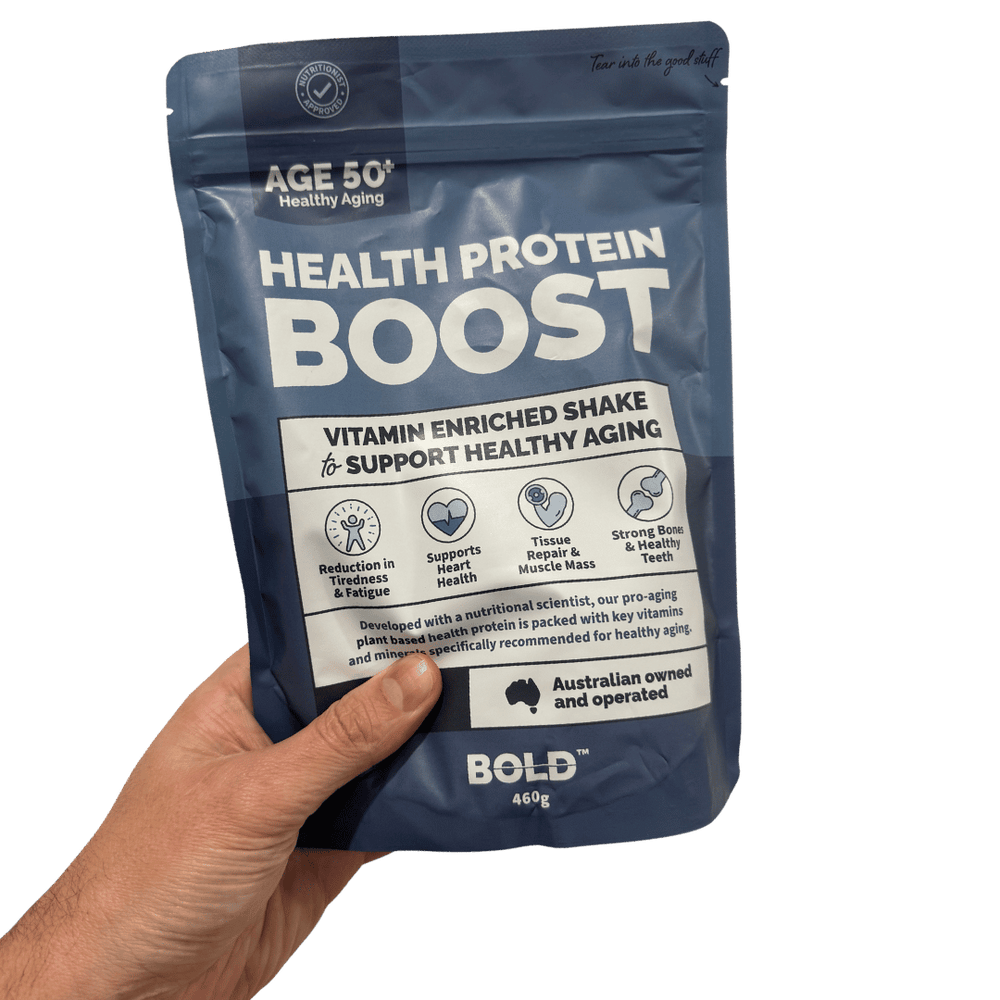Understanding our nutrient absorption and metabolism for more energy and better health

Our bodies undergo numerous changes through the years that can affect our overall health and well-being, including:
- a reduced ability to absorb essential nutrients and
- a natural slowing of our metabolism.
This decline in nutrient absorption can be attributed to factors such as decreased production of stomach acid and digestive enzymes, changes in the gastrointestinal tract and chronic health conditions, leading to deficiencies in vital nutrients like vitamin B12, calcium, iron, and magnesium.
Additionally, maintaining weight and energy levels becomes more challenging due to a slower metabolism, which is influenced by:
- reduced muscle mass,
- decreased physical activity, and
- hormonal changes.
Understanding these changes can help us take proactive steps to ensure we meet our nutritional needs and maintain our health and vitality as we grow older.
All the details and what to do below:
The slowing down of the metabolic rate as we age can be attributed to several factors:
-
Decreased Muscle Mass: Muscle tissue is metabolically active, meaning it burns calories even at rest. As we age, we tend to lose muscle mass, which can lead to a slower metabolism.
-
Hormonal Changes: Aging can result in hormonal changes that may decrease the body’s metabolic rate. For example, levels of thyroid hormones, which regulate metabolism, can decline with age.
-
Reduced Physical Activity: Older adults often engage in less physical activity than they did in their younger years. Less activity can lead to a decrease in muscle mass and a slower metabolism.
-
Cellular Aging: As cells age, they become less efficient at processing energy, which can contribute to a slower overall metabolic rate.
-
Changes in Body Composition: With age, the proportion of fat to muscle tends to increase, and since fat tissue is less metabolically active than muscle tissue, this shift can slow down the metabolism.
In addition to a slower metabolism we also experience a decrease in nutrient absorption as we age which can be attributed to several factors:
- Digestive Enzymes and Stomach Acid: There is a decline in the production of digestive enzymes and stomach acid, which are crucial for breaking down food and absorbing nutrients. This reduction can lead to impaired digestion and absorption
- Gastric Motility: Aging is associated with slowed gastric motility, meaning the movement of food through the digestive tract slows down. This can affect how well nutrients are absorbed
- Gastric Secretions: There is a decrease in gastric secretions with age, which can impact the digestion process and subsequent nutrient absorption
- Gallbladder Function: Impaired gallbladder contraction can occur, affecting the release of bile that aids in fat digestion and absorption
- Intestinal Changes: The small intestine may undergo changes that affect its ability to absorb nutrients effectively. Conditions like small intestinal bacterial overgrowth can become more common with age and can lead to decreased absorption of certain nutrients such as vitamin B12, iron, and calcium
- Medication Use: Older adults often take medications that can interfere with nutrient absorption. For example, some drugs can reduce stomach acid production, further hindering the absorption process
- Underlying Health Conditions: Various health conditions that become more prevalent with age can contribute to malabsorption of nutrients
Maintaining an active lifestyle and a balanced diet can help mitigate some of these effects. Strength training and protein-rich foods are particularly beneficial in preserving muscle mass and keeping the metabolism active.
You many need a nutrient Boost! From just 2-3 times a week
These changes highlight the importance of monitoring dietary intake and possibly adjusting it to meet the body’s evolving needs as one ages. It’s always a good idea to consult with healthcare professionals for personalized dietary advice.




